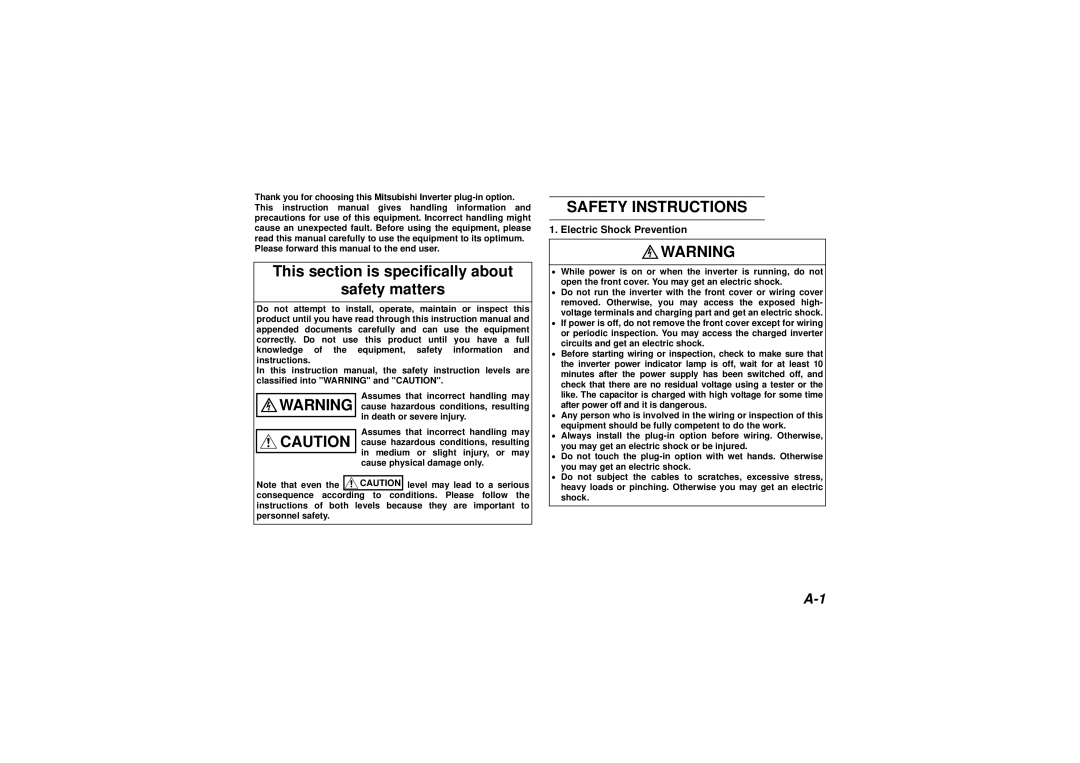
Thank you for choosing this Mitsubishi Inverter
This section is specifically about
safety matters
Do not attempt to install, operate, maintain or inspect this product until you have read through this instruction manual and appended documents carefully and can use the equipment correctly. Do not use this product until you have a full knowledge of the equipment, safety information and instructions.
In this instruction manual, the safety instruction levels are classified into "WARNING" and "CAUTION".
SAFETY INSTRUCTIONS
1. Electric Shock Prevention
![]() WARNING
WARNING
• While power is on or when the inverter is running, do not | |
| open the front cover. You may get an electric shock. |
• | Do not run the inverter with the front cover or wiring cover |
| removed. Otherwise, you may access the exposed high- |
| voltage terminals and charging part and get an electric shock. |
• | If power is off, do not remove the front cover except for wiring |
| or periodic inspection. You may access the charged inverter |
| circuits and get an electric shock. |
• | Before starting wiring or inspection, check to make sure that |
| the inverter power indicator lamp is off, wait for at least 10 |
| minutes after the power supply has been switched off, and |
| check that there are no residual voltage using a tester or the |
![]()
![]() WARNING
WARNING
![]()
![]() CAUTION
CAUTION
Assumes that incorrect handling may cause hazardous conditions, resulting in death or severe injury.
Assumes that incorrect handling may cause hazardous conditions, resulting in medium or slight injury, or may cause physical damage only.
like. The capacitor is charged with high voltage for some time |
after power off and it is dangerous. |
• Any person who is involved in the wiring or inspection of this |
equipment should be fully competent to do the work. |
• Always install the |
you may get an electric shock or be injured. |
• Do not touch the |
you may get an electric shock. |
Note that even the ![]()
![]() CAUTION level may lead to a serious consequence according to conditions. Please follow the instructions of both levels because they are important to personnel safety.
CAUTION level may lead to a serious consequence according to conditions. Please follow the instructions of both levels because they are important to personnel safety.
• Do not subject the cables to scratches, excessive stress, |
heavy loads or pinching. Otherwise you may get an electric |
shock. |
